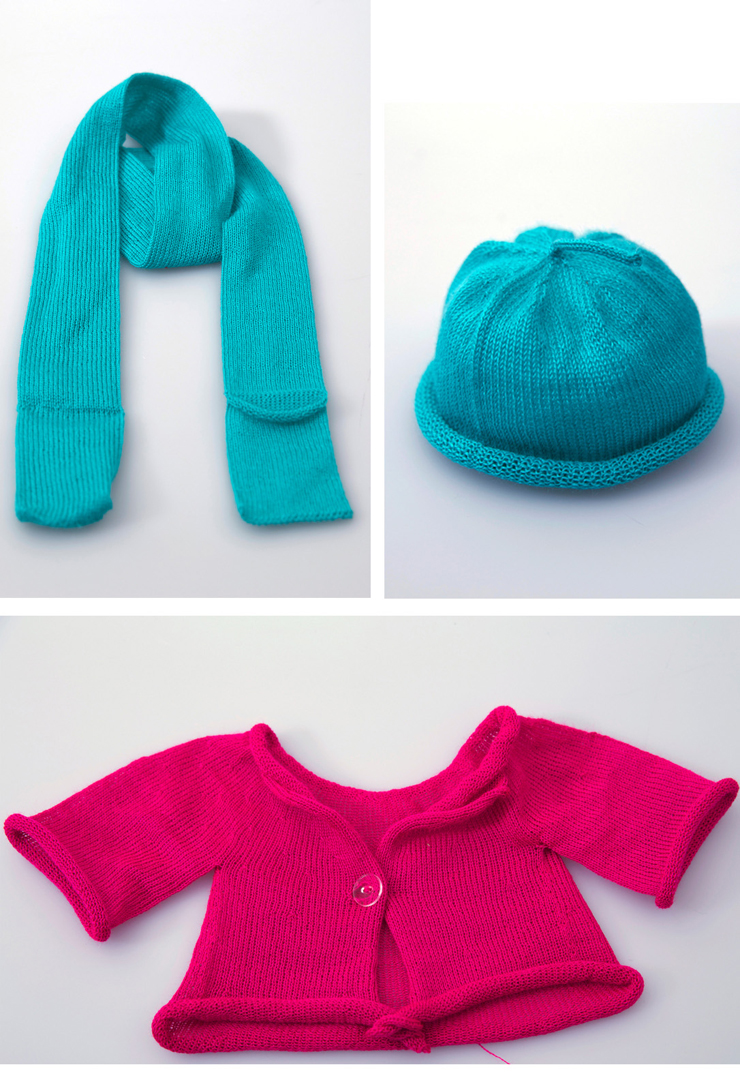“A compiler for 3D machine knitting” by McCann, Albaugh, Narayanan, Grow, Matusik, et al. …
Conference:
Type(s):
Title:
- A compiler for 3D machine knitting
Session/Category Title:
- CLOTH
Presenter(s)/Author(s):
- James (Jaimy) McCann
- Lea Albaugh
- Vidya Narayanan
- April Grow
- Wojciech Matusik
- Jennifer Mankoff
- Jessica K. Hodgins
Moderator(s):
Abstract:
Industrial knitting machines can produce finely detailed, seamless, 3D surfaces quickly and without human intervention. However, the tools used to program them require detailed manipulation and understanding of low-level knitting operations. We present a compiler that can automatically turn assemblies of high-level shape primitives (tubes, sheets) into low-level machine instructions. These high-level shape primitives allow knit objects to be scheduled, scaled, and otherwise shaped in ways that require thousands of edits to low-level instructions. At the core of our compiler is a heuristic transfer planning algorithm for knit cycles, which we prove is both sound and complete. This algorithm enables the translation of high-level shaping and scheduling operations into needle-level operations. We show a wide range of examples produced with our compiler and demonstrate a basic visual design interface that uses our compiler as a backend.
References:
1. All Yarns Are Beautiful, 2014. Ayab – all yarns are beautiful. {Online}. Available from: http://ayab-knitting.com/index_en.html#features.Google Scholar
2. Cirio, G., Lopez-Moreno, J., Miraut, D., and Otaduy, M. A. 2014. Yarn-level simulation of woven cloth. ACM Trans. Graph. 33, 6 (Nov.), 207:1–207:11. Google ScholarDigital Library
3. Cirio, G., Lopez-Moreno, J., and Otaduy, M. A. 2015. Efficient simulation of knitted cloth using persistent contacts. In Proceedings of the 14th ACM SIGGRAPH/Eurographics Symposium on Computer Animation, 55–61. Google ScholarDigital Library
4. CLO Virtual Fashion Inc., 2010. Marvelous designer. http://marvelousdesigner.com.Google Scholar
5. Cook, R. L., Carpenter, L., and Catmull, E. 1987. The reyes image rendering architecture. In Proceedings of the 14th Annual Conference on Computer Graphics and Interactive Techniques, SIGGRAPH ’87, 95–102. Google ScholarDigital Library
6. Guljajeva, V., and Canet, M., 2012. Knitic open hardware knitting machine. {Online}. Available from: http://www.knitic.com.Google Scholar
7. Igarashi, Y. 2008. Knitty: 3d modeling of knitted animals with a production assistant interface. In Eurographics 2008 Annex to the Conference Proceedings.Google Scholar
8. Kaldor, J. M., James, D. L., and Marschner, S. 2008. Simulating knitted cloth at the yarn level. ACM Trans. Graph. 27, 3 (Aug.), 65:1–65:9. Google ScholarDigital Library
9. Kaldor, J. M., James, D. L., and Marschner, S. 2010. Efficient yarn-based cloth with adaptive contact linearization. ACM Trans. Graph. 29, 4 (July), 105:1–105:10. Google ScholarDigital Library
10. Liu, Y.-J., Zhang, D.-L., and Yuen, M. M.-F. 2010. A survey on CAD methods in 3D garment design. Computers in Industry 61, 6, 576–593. Google ScholarDigital Library
11. Mori, Y., and Igarashi, T. 2007. Plushie: An interactive design system for plush toys. ACM Trans. Graph. 26, 3 (July). Google ScholarDigital Library
12. OpenKnit, 2014. Openknit: open source digital knitting. {Online}. Available from: http://www.openknit.org.Google Scholar
13. Ragan-Kelley, J., Adams, A., Paris, S., Levoy, M., Amarasinghe, S., and Durand, F. 2012. Decoupling algorithms from schedules for easy optimization of image processing pipelines. ACM Trans. Graph. 31, 4 (July), 32:1–32:12. Google ScholarDigital Library
14. Shima Seiki, 2011. Sds-one apex3. {Online}. Available from: http://www.shimaseiki.com/product/design/sdsone_apex/flat/.Google Scholar
15. Soft Byte Ltd., 1999. Designaknit. {Online}. Available from: https://www.softbyte.co.uk/designaknit.htm.Google Scholar
16. Stoll, 2011. M1plus pattern software. {Online}. Available from: http://www.stoll.com/stoll_software_solutions_en_4/pattern_software_m1plus/3_1.Google Scholar
17. Umetani, N., Kaufman, D. M., Igarashi, T., and Grinspun, E. 2011. Sensitive couture for interactive garment modeling and editing. ACM Trans. Graph. 30, 4 (July), 90:1–90:12. Google ScholarDigital Library
18. Underwood, J. 2009. The design of 3D shape knitted preforms. PhD thesis, Fashion and Textiles, RMIT University.Google Scholar
19. Vidimče, K., Wang, S.-P., Ragan-Kelley, J., and Matusik, W. 2013. Openfab: A programmable pipeline for multi-material fabrication. ACM Trans. Graph. 32, 4 (July), 136:1–136:12. Google ScholarDigital Library
20. Wibowo, A., Sakamoto, D., Mitani, J., and Igarashi, T. 2012. Dressup: A 3d interface for clothing design with a physical mannequin. In The 6th International Conference on Tangible, Embedded and Embodied Interaction (TEI 2012), 99–102. Google ScholarDigital Library
21. Yuksel, C., Kaldor, J. M., James, D. L., and Marschner, S. 2012. Stitch meshes for modeling knitted clothing with yarn-level detail. ACM Trans. Graph. 31, 4 (July), 37:1–37:12. Google ScholarDigital Library





